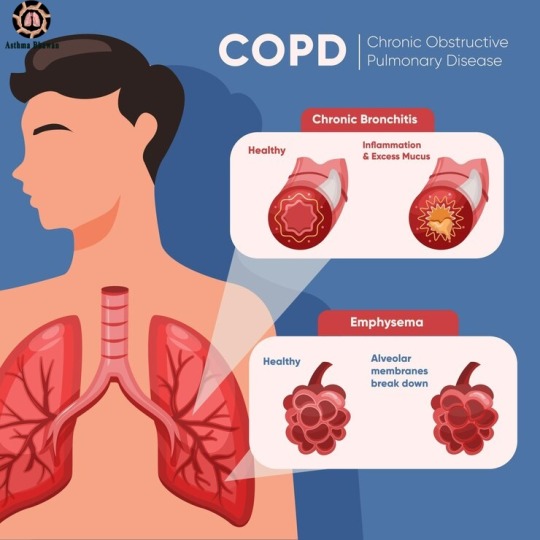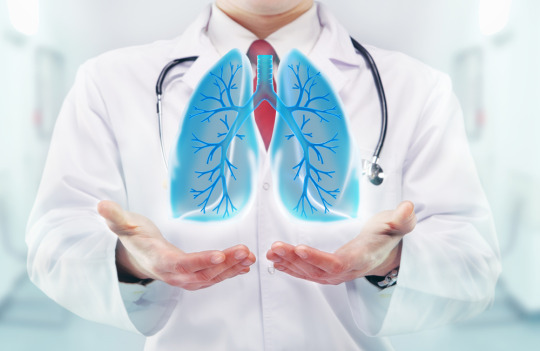#lung cancer in india
Text
Liver transplant cost in India
Liver transplant cost in India has gained significant attention in recent years as the country has emerged as a global leader in providing high-quality healthcare services at a fraction of the cost compared to many Western nations. In this article, we'll delve into the factors that contribute to the affordability of liver transplants cost in India, making it a preferred destination for patients worldwide.

0 notes
Text
#best doctor for lung cancer treatment in India#Lung Cancer in Adults#lung cancer in India#Lung Cancer Treatment#Lung Cancer Treatment In Delhi#Lung Cancer Treatment In Gurgaon#Lung Cancer Treatment In India#lung carcinoma#Symptoms of Lung Cancer in Adults
0 notes
Text

Chronic Obstructive Pulmonary Disease (COPD) Specialist in Rajasthan
Chronic Obstructive Pulmonary Disease (COPD) is a progressive lung disease that obstructs airflow from the lungs, making it difficult to breathe. It encompasses conditions such as emphysema and chronic bronchitis. The primary cause of COPD is long-term exposure to irritating gases or particulate matter, most commonly from cigarette smoke. COPD is a leading cause of morbidity and mortality worldwide, particularly affecting individuals in regions with high levels of air pollution and smoking prevalence. Asthma Bhawan in Rajasthan is a renowned center specializing in the treatment of respiratory diseases, including COPD. Here are compelling reasons to choose Asthma Bhawan for COPD management
#asthma bhawan#best asthma treatment in jaipur#best snoring treatment in india#best lungs cancer diagnosis in india
0 notes
Text
Best Lung Cancer Treatment In India
Lung cancer continues to be a significant global health concern, affecting millions of individuals each year. With advancements in medical science and technology, the landscape of lung cancer treatment has evolved, offering patients more effective and innovative options to combat this formidable disease. In India, renowned for its world-class healthcare infrastructure and skilled medical professionals, patients have access to some of the best lung cancer treatment facilities and expertise. Let's delve into the realm of lung cancer treatment in India and explore what makes it stand out on the global stage.
State-of-the-Art Treatment Facilities:
India boasts a vast network of hospitals and cancer centers equipped with state-of-the-art facilities and cutting-edge technology for the diagnosis and treatment of lung cancer. From leading tertiary care hospitals in metropolitan cities to specialized oncology centers, patients have access to a wide range of treatment options tailored to their specific needs.
Multidisciplinary Approach:
One of the hallmarks of the best lung cancer treatment in India is its multidisciplinary approach. A team of highly skilled oncologists, pulmonologists, thoracic surgeons, radiation oncologists, medical oncologists, and other healthcare professionals collaborate closely to formulate comprehensive treatment plans that address the unique aspects of each patient's condition. This collaborative approach ensures holistic care and optimal treatment outcomes.
Advanced Treatment Modalities:
India's top lung cancer treatment facilities offer a comprehensive range of treatment modalities, including surgery, chemotherapy, radiation therapy, targeted therapy, immunotherapy treatment, and precision medicine. These facilities are equipped with advanced diagnostic tools such as PET-CT scans, MRI, and genomic profiling, enabling accurate staging and personalized treatment strategies.
Minimally Invasive Surgery:
Minimally invasive surgical techniques, such as video-assisted thoracic surgery (VATS) and robotic-assisted surgery, are widely employed in India for the treatment of lung cancer. These techniques offer several advantages over traditional open surgery, including smaller incisions, reduced postoperative pain, shorter hospital stays, and faster recovery times.
Comprehensive Support Services:
The best lung cancer treatment centers in India prioritize patient-centric care and offer a wide range of support services to address the physical, emotional, and psychological needs of patients and their families. These services may include counseling, nutritional support, pain management, palliative care, and survivorship programs, ensuring holistic care throughout the treatment journey.
Clinical Trials and Research:
India's leading cancer centers actively participate in clinical trials and research initiatives aimed at advancing the understanding and treatment of lung cancer. Patients may have the opportunity to enroll in clinical trials exploring novel therapies, targeted agents, and immunotherapies, providing access to cutting-edge treatments not widely available elsewhere.
Affordability and Accessibility:
Despite offering world-class treatment facilities and expertise, lung cancer treatment in India remains significantly more affordable compared to many Western countries. Patients from across the globe seek treatment in India due to its cost-effectiveness, high quality of care, and shorter waiting times. Moreover, India's medical tourism industry facilitates seamless travel, accommodation, and logistics arrangements for international patients seeking treatment.
Conclusion:
The best lung cancer treatment in India combines clinical excellence, advanced technology, multidisciplinary expertise, and patient-centric care to deliver superior outcomes and improve the quality of life for patients battling this disease. With a focus on innovation, compassion, and affordability, India's healthcare ecosystem continues to set benchmarks in the field of oncology, offering hope and healing to patients from all walks of life.
#immunotherapy#immunotherapy cancer treatment#immunotherapy treatment#Immunotherapy for Cancer in India#Best Lung Cancer Treatment In India
0 notes
Text
Explore the landscape of lung health in India. Get insights from expert doctors and understand surgery costs. Empower yourself for better respiratory well-being.
0 notes
Text

In the realm of #personalized medicine, #G2M offers Liquid Biopsy NGS #Panels, which stand out as revolutionary tools, offering unprecedented levels of sensitivity at a fraction of the traditional cost. These panels represent a cutting-edge approach to detecting and monitoring various diseases, including #colorectal, breast, and lung #cancer, with remarkable precision and efficiency.
Unlike conventional tissue biopsies, which can be invasive, time-consuming, and sometimes challenging to obtain, our liquid biopsy panels offer a minimally invasive alternative approach that can be performed more frequently, allowing for real-time #monitoring of disease progression and treatment response.
Visit our website for more information https://www.genes2me.com/next-generation-sequencing-clinical-panels/cancer-diagnosis-dna-Panels
To know more about these NGS Panels, contact us at [email protected] or call us +91-8800821778.
#genes2me #lungcancer #disease #liquidbiopsy #breastcancer #lungcancer #colorectalcancer #ctdna #dna #dnasequencing #madeinindia #manufacturing #nextgenerationsequencing #nextgeneration #india
#personalized medicine#g2m#genes2me#ngs#ngs panels#lung cancer#disease#liquid biopsy#breast cancer#colorectal cancer#ctdna#dna#dna sequencing#made in india#next generation#manufacturing#India
1 note
·
View note
Text

For healthy heart do some exercise at least 30 minutes a day, at least five days a week. Examples: Brisk walking, running, swimming, cycling, playing tennis and jumping rope. Heart-pumping aerobic exercise is the kind that doctors have in mind when they recommend at least 150 minutes per week of moderate activity.
visit India for best medical value treatment at lowest price range.
#treatment in india#best doctor in india#medical tourism#medical facilitator#healthcare services#healthy heart#heart#lungs transplant#heart transplant#kidney transplant#liver transplant#oncology#cancer
0 notes
Text

The Growing Popularity of Homeopathy for Cancer Treatment in India
In recent years, there has been a growing interest in alternative medicine approaches for cancer treatment, with homeopathy being one of them. Homeopathy, a system of medicine developed in the 18th century, is widely practiced in India and offers a unique perspective on cancer care.
Visit Us:-
0 notes
Text
Lung Cancer Management and Prevention: Strategies for a Healthier Future
Lung Cancer Management and Prevention: Strategies for a Healthier Future
Introduction:
Lung cancer is a devastating disease that affects millions of people worldwide. It is crucial to focus on both the management and prevention of lung cancer to reduce its impact on individuals and society. In this article, we will explore effective strategies for the management and prevention of lung cancer, including early detection, treatment options, lifestyle modifications, and avoiding risk factors.
Lung Cancer Management:
1. Early Detection:
Early detection of lung cancer significantly improves treatment outcomes. It is important for individuals at high risk, such as smokers and those with a family history, to undergo regular screening. Low-dose computed tomography (LDCT) scans have proven to be effective in detecting lung cancer at an early stage when it is more treatable. Consultation with healthcare professionals is crucial to determine the appropriate screening protocol based on individual risk factors.
2. Treatment Options:
The management of lung cancer depends on various factors, including the type and stage of the disease. Treatment options may include surgery, chemotherapy, radiation therapy, targeted therapy, and immunotherapy. A multidisciplinary approach, involving a team of specialists, ensures a personalized treatment plan tailored to each patient's needs. Regular follow-ups and adherence to treatment recommendations are essential for optimal outcomes.
3. Palliative Care:
For advanced-stage lung cancer or cases where a cure is not possible, palliative care plays a vital role in managing symptoms, improving quality of life, and providing support to patients and their families. Palliative care focuses on pain management, symptom relief, and emotional support, ensuring comfort and dignity throughout the journey.
Lung Cancer Prevention:
1. Avoiding Tobacco:
Tobacco smoking is the leading cause of lung cancer. Quitting smoking is the most effective way to prevent lung cancer and improve overall health. If you smoke, seek support from healthcare professionals, join smoking cessation programs, and utilize available resources to help you quit. Avoid exposure to secondhand smoke, as it can also increase the risk of developing lung cancer.
2. Environmental Hazards:
Reducing exposure to environmental hazards can help lower the risk of lung cancer. Avoid or minimize exposure to asbestos, radon, diesel exhaust, and other workplace or environmental toxins. Take necessary precautions, such as wearing protective equipment and following safety guidelines, in occupations with potential exposure to carcinogens.
3. Healthy Lifestyle:
Maintaining a healthy lifestyle can contribute to lung cancer prevention. Engage in regular physical activity, as it not only promotes overall well-being but also helps reduce the risk of various diseases, including lung cancer. Follow a balanced diet rich in fruits, vegetables, whole grains, and lean proteins. Limit alcohol consumption, as excessive alcohol intake can increase the risk of certain cancers, including lung cancer.
4. Awareness and Education:
Raising awareness about the risks of lung cancer, its early detection, and available preventive measures is crucial. Education campaigns targeting high-risk populations, workplaces, and communities can help promote healthy behaviors and encourage regular screenings.
Conclusion:
Lung cancer management and prevention require a comprehensive approach that encompasses early detection, effective treatment, lifestyle modifications, and awareness. Early detection through regular screening increases the chances of successful treatment. Treatment options, including surgery, chemotherapy, radiation therapy, targeted therapy, and immunotherapy, are continually advancing, providing hope for improved outcomes. However, prevention remains the most powerful tool in combating lung cancer. Avoiding tobacco, minimizing exposure to environmental hazards, adopting a healthy lifestyle, and promoting awareness can significantly reduce the risk of developing this devastating disease. By implementing these strategies, we can strive for a healthier future and a significant reduction in the burden of lung cancer on individuals and society.
0 notes
Text
Lung Cancer Treatment in India

Lung cancer is a type of cancer that starts in the lungs. It is the leading cause of cancer death in both men and women in the United States. There are two main types of lung cancer:
Small cell lung cancer: This type of lung cancer grows and spreads quickly. It is often diagnosed at a later stage, when it is more difficult to treat.
Non-small cell lung cancer: This type of lung cancer grows more slowly than small cell lung cancer. It is often diagnosed at an earlier stage, when it is more treatable.
Symptoms
The symptoms of lung cancer can vary depending on the type of lung cancer and the stage of the cancer. Some common symptoms of lung cancer include:
Cough: A cough that is new, persistent, or that changes in character.
Chest pain: Chest pain that is worse with deep breathing or coughing.
Shortness of breath: Shortness of breath that is worse with activity.
Wheezing: Wheezing that is worse with activity.
Blood in the sputum: Blood in the sputum, which is the mucus that is coughed up from the lungs.
Weight loss: Unexplained weight loss.
Fatigue: Fatigue that is not relieved by rest.
Causes
The main cause of lung cancer is smoking. Other causes of lung cancer include:
Secondhand smoke: Exposure to secondhand smoke can increase your risk of lung cancer.
Air pollution: Exposure to air pollution can increase your risk of lung cancer.
Asbestos exposure: Exposure to asbestos can increase your risk of lung cancer.
Radon exposure: Radon is a radioactive gas that can be found in some homes. Exposure to radon can increase your risk of lung cancer.
Diagnosis
If you have symptoms that are concerning for lung cancer, your doctor will likely order a chest X-ray. If the chest X-ray shows something abnormal, your doctor may order other tests, such as a CT scan, a PET scan, or a biopsy.
Treatments
The treatment for lung cancer depends on the type of lung cancer, the stage of the cancer, and your overall health. Treatment options for lung cancer include:
Surgery: Surgery is a common treatment for early-stage lung cancer.
Chemotherapy: Chemotherapy is a treatment that uses drugs to kill cancer cells.
Radiation therapy: Radiation therapy is a treatment that uses high-energy beams to kill cancer cells.
Targeted therapy: Targeted therapy is a treatment that uses drugs to target specific molecules on cancer cells.
Immunotherapy: Immunotherapy is a treatment that uses the body's own immune system to fight cancer.
Risks
The risks of lung cancer treatment vary depending on the type of treatment. Some common risks of lung cancer treatment include:
Side effects: Chemotherapy and radiation therapy can have side effects, such as nausea, vomiting, hair loss, and fatigue.
Infection: Cancer treatment can weaken the immune system, making you more likely to get infections.
Second cancer: Cancer treatment can increase your risk of developing another type of cancer.
Procedure
The procedure for lung cancer treatment varies depending on the type of treatment. However, some common steps include:
Surgery: Surgery for lung cancer is usually performed through a thoracotomy, which is a cut in the chest.
Chemotherapy: Chemotherapy is usually given through an IV.
Radiation therapy: Radiation therapy is usually given through a machine that directs beams of radiation at the cancer.
Targeted therapy: Targeted therapy is usually given through an IV.
Immunotherapy: Immunotherapy is usually given through an injection.
Recovery
The recovery time for lung cancer treatment varies depending on the type of treatment. However, most people are able to return to their normal activities within a few weeks or months.
Success rate
The success rate of lung cancer treatment depends on the type of lung cancer, the stage of the cancer, and your overall health. The overall survival rate for lung cancer is about 15%. However, the survival rate is higher for early-stage lung cancer.
Cost in India
The cost of lung cancer treatment in India varies depending on the type of treatment, the hospital, and the city. However, lung cancer treatment is generally more affordable in India than in other countries.
Benefits
Early detection and treatment of lung cancer can improve your chances of survival. Lung cancer treatment can also improve your quality of life.
#Lung Cancer Treatment in India#Lung Cancer Treatment#Lung Cancer#Cancer#Treatments#Lung Cancer Symptoms#Lung Cancer Causes#Lung Cancer Diagnosis#Lung Cancer Cost#Lung Cancer Treatment Cost
0 notes
Text
Immunotherapy for Lungs Cancer
Cell therapy, specifically immunotherapy for cancer patients, is being researched as a potential treatment option for Lungs cancer patients. Personalized immunotherapy uses a person's own immune cells to fight cancer.

To Know more about Cancer Immunotherapy
Please visit: https://www.viecells.com/
Email: [email protected]
Ph: +91-9001290028
#cancer#lungscancer#lungs#immunotherapy#NK#NKCells#NKcelltreatment#cancerimmunotherapy#cancertreatment#viecells#gujarati#surat#india
0 notes
Text
#best lung cancer specialists in India#lung cancer in India#lung cancer specialist#Lung Cancer Treatment#Lung Cancer Treatment In Gurgaon#Lung Cancer Treatment In India
0 notes
Text
#asthma bhawan#best lungs cancer diagnosis in india#best asthma treatment in jaipur#best ild diagnosis in india#best ild treatment in jaipur
0 notes
Text
Treatment for Lung Cancer in Noida: Types and Stages of Lung Cancer
If you or your loved ones are seeking treatment of lung cancer in Noida., I highly recommend considering Dr. Manish Singhal. His expertise, professionalism, and compassionate care make him a standout oncologist in the field.Moreover, the facilities at Dr. Singhal's clinic were state-of-the-art, equipped with the latest diagnostic and treatment technologies. This, combined with his expertise, reassured us that we were receiving the best possible care. Lung cancer can be categorized into two primary types: non-small cell lung cancer (NSCLC) and small cell lung cancer (SCLC). These types are further divided into different stages based on the size of the tumor and the extent of its spread.
#treatment for lung cancer in Noida#Cancer Specialist in Noida#Best Cancer Doctor in Noida#Best Oncologist in Delhi NCR#Oncologist in Noida#Case Study of Cancer Patient in India#Cancer Specialist in Delhi NCR#Best Oncologist in Noida
1 note
·
View note
Text
Digital health: FDA takes new steps to advance decentralized clinical trials

- By InnoNurse Staff -
The FDA is taking new steps to encourage the use of decentralized clinical trials (DCTs) for medicines, biologics, and devices, in which some or all trial-related activities take place in places other than typical clinical trial sites.
Read more at FDA
///
Other recent news and insights
Conversation with the CDER: The changing role of decentralized clinical trials and digital health technologies (FDA)
India: MyAva, a femtech startup, has been acquired by Bonatra (IndianWeb2)
Whole-genome sequencing was utilized to identify the genes responsible for familial glioma (Medical Xpress)
AI could aid doctors in the diagnosis of lung cancer (The Institute of Cancer Research)
Using the Oxford Mental Illness and Suicide (OxMIS) model to predict suicide risk (Medical Xpress)
Artificial intelligence in the diagnosis of osteoporosis (Kiel University)
Imaging: Dermatologists detect the smallest skin cancer (OHSU)
#dct#digital health#usa#fda#clinical trials#myava#women health#femtech#bonatra#india#genomics#cancer#oncology#genome sequencing#medtech#ai#artificial intelligence#lung cancer#lungs#oxmis#suicide#mental health#psychiatry#osteoporosis#dermatology#skin cancer#imaging#medical imaging
0 notes